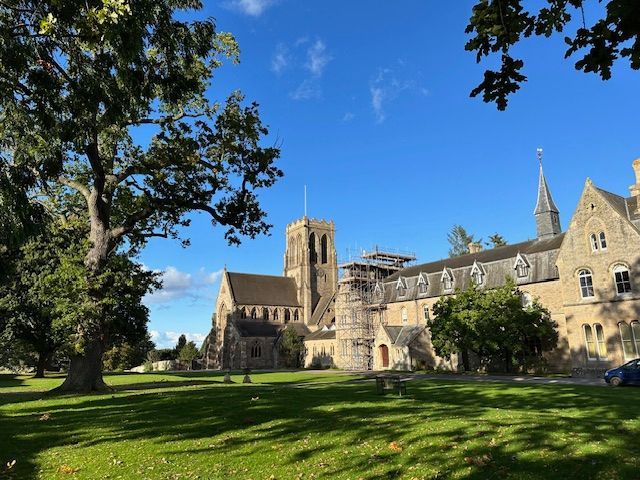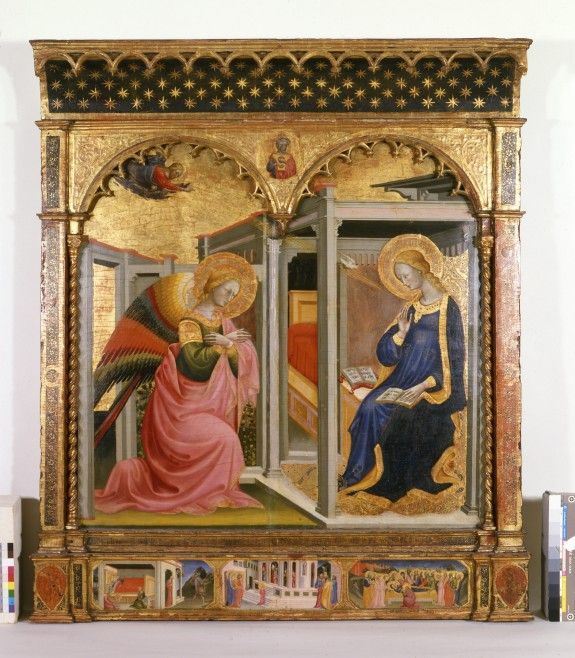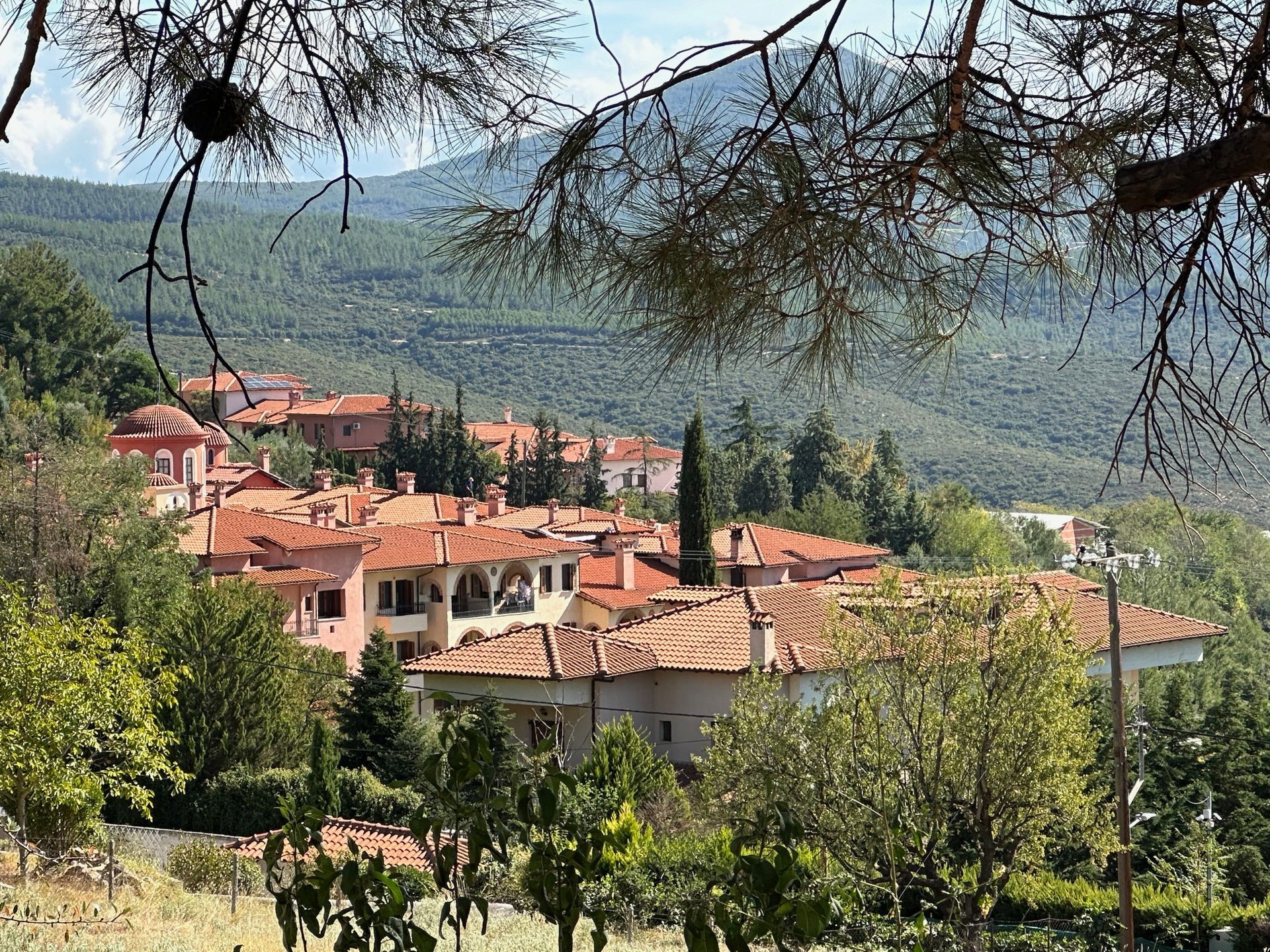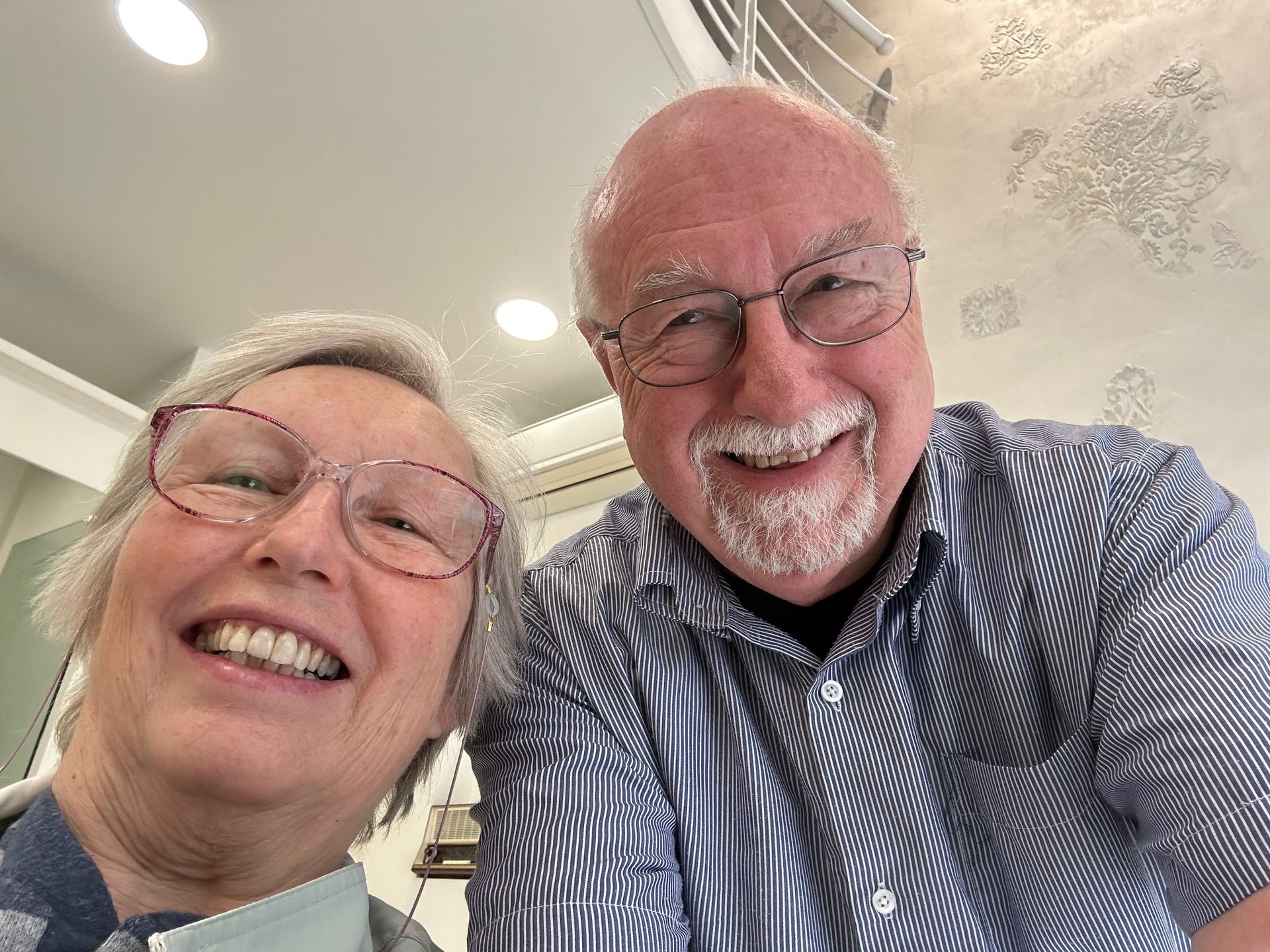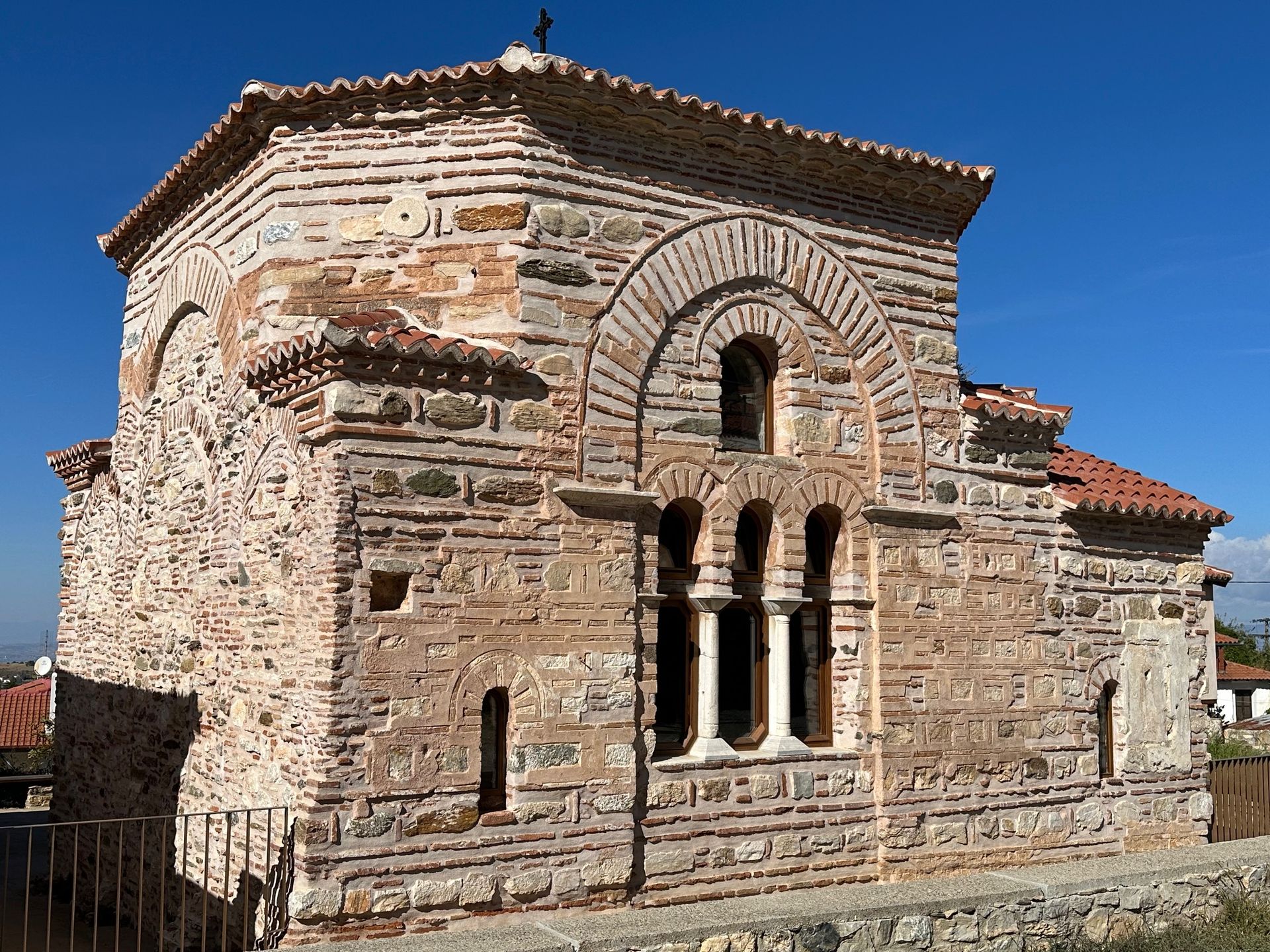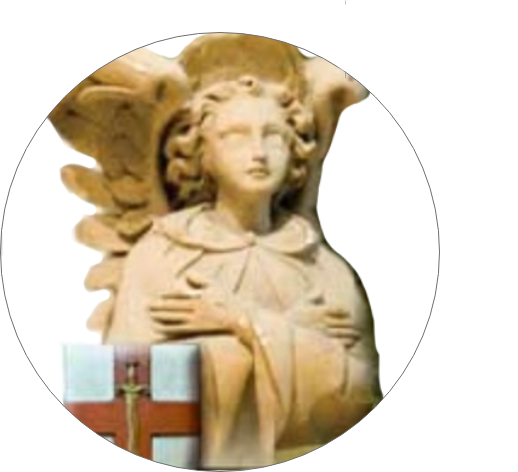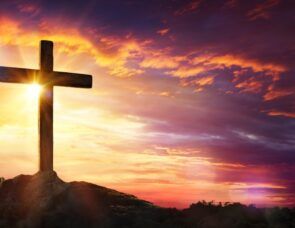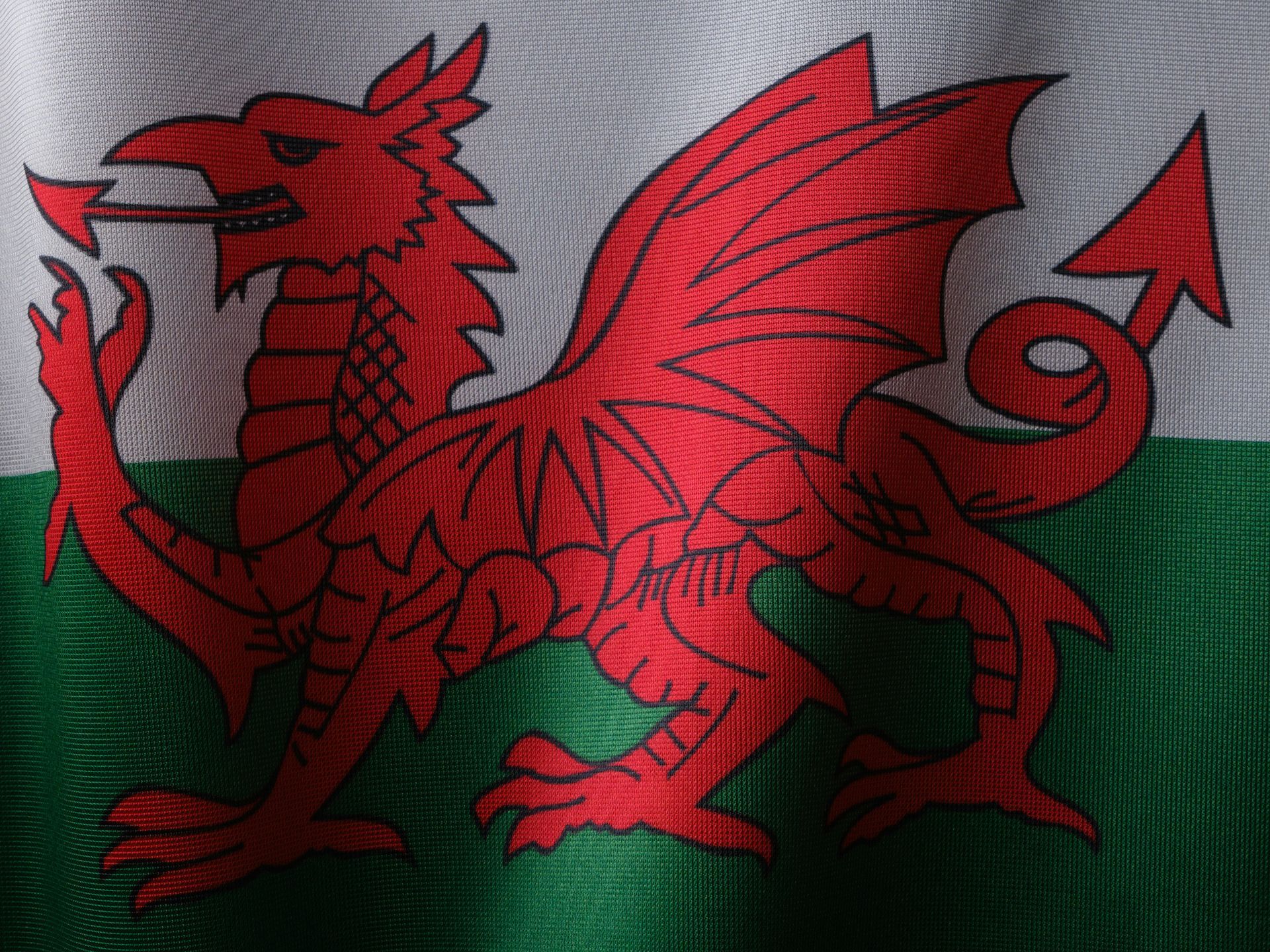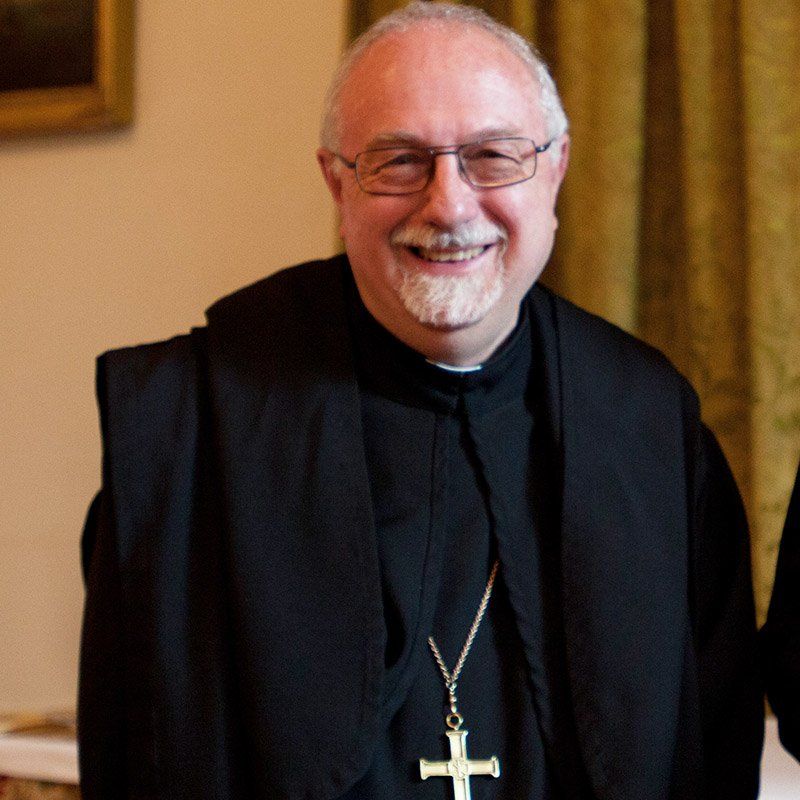Pope Benedict XVI Requiescat in pace
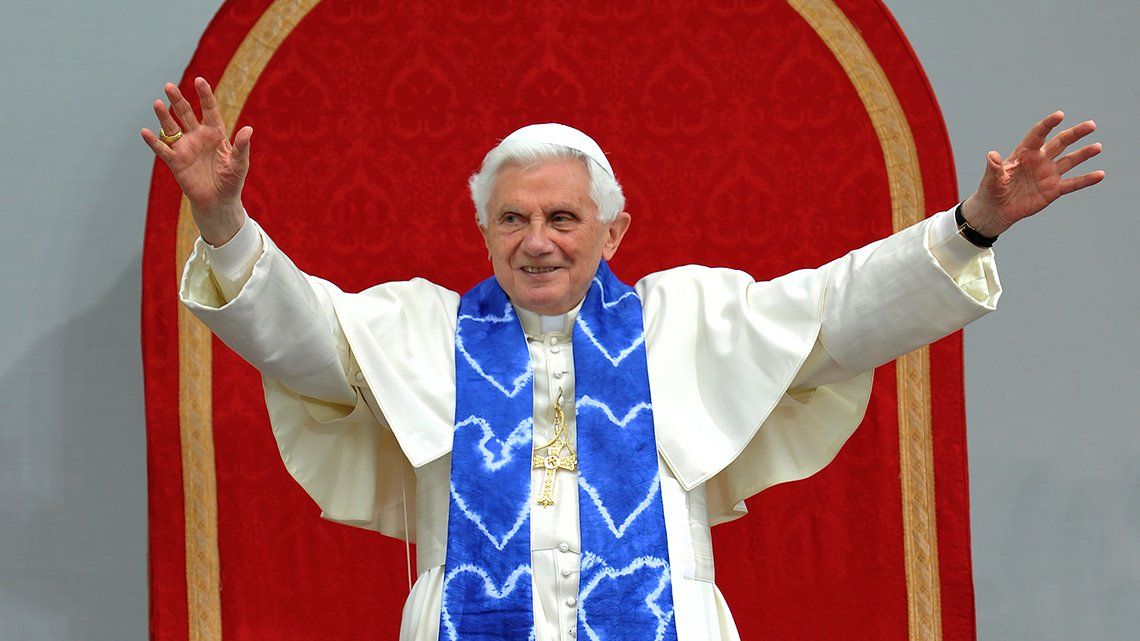
Pope Emeritus Benedict XVI, who served as Supreme Pontiff from April 2005 to February 2013, has died aged 95, the Vatican has confirmed.
A short statement from Matteo Bruni, Director of the Holy See’s Press Office, said: “With sorrow I inform you that the Pope Emeritus, Benedict XVI, passed away today at 9:34am in the Mater Ecclesiae Monastery in the Vatican.”
Cardinal Vincent Nichols, President of the Bishops’ Conference, said:
“I am deeply saddened to learn of the death of Pope Benedict. He will be remembered as one of the great theologians of the 20th century.
“I remember with particular affection the remarkable Papal Visit to these lands in 2010. We saw his courtesy, his gentleness, the perceptiveness of his mind and the openness of his welcome to everybody that he met.”
“He was through and through a gentleman, through and through a scholar, through and through a pastor, through and through a man of God – close to the Lord and always his humble servant.”
“Pope Benedict is very much in my heart and in my prayers. I give thanks to God for his ministry and leadership.”
The Catholic Bishops of England and Wales will celebrate Requiem Masses for the repose of the soul of the late Pope Emeritus in their cathedrals.
Prayer cards have been distributed to Catholic parishes throughout the two countries.
Obituary
Benedict XVI was Pope for less than eight years – 19 April 2005 to 28 February 2013 – and became generally known in Britain as the second pope in history to visit the UK in 2010. The first such visit had been by Pope John Paul II to England, Wales and Scotland, in 1982.
Papal Visit in 2010
There were plenty of gloomy predictions for Pope Benedict’s visit: hostile demonstrations were expected, apologists for a new atheism resurrected a nickname for him as “God’s rottweiler”. But he was cordially welcomed by the Queen in Edinburgh and cheered by the crowds.
The turning-point that sealed the visit as a national success came on the second day: the Pope’s address to representatives of society, including parliamentarians, under the ancient beams of Westminster Hall. He spoke about “the legitimate role of religion in the public square” and he was listened to. He pressed the idea that “the Church and the public authorities can work together for the good of citizens” and he was applauded by David Cameron, the then-Prime Minister, and his predecessors Gordon Brown, Tony Blair, John Major and Margaret Thatcher. The Pope received a standing ovation as he walked down the great length of the hall.
The central purpose of the visit was to beatify – declare Blessed – the great 19th century English theologian Cardinal John Henry Newman. Some 55,000 people stood for hours in a grassy field at Cofton Park, Birmingham, in intermittent drizzle, for the Mass of Beatification. They sang Newman’s Praise to the Holiest in the Height and the liturgy to the music of James MacMillan. In his homily, the Pope mentioned that the day happened to be the 70th anniversary of the Battle of Britain. “For me as one who lived and suffered through the dark days of the Nazi regime in Germany, it is deeply moving to be here with you on this occasion, and to recall how many of your fellow citizens sacrificed their lives, courageously resisting the forces of that evil ideology.”
As for Newman, the Pope singled out his “gentle scholarship, deep human wisdom and profound love for the Lord.” As he had recalled in 1990, he was inspired by Newman’s teaching on conscience as a seminarian at Freising after the War.
One other detail from that visit struck many television viewers: the evening prayer vigil, the night before the beatification, attended by the Pope in Hyde Park. It was not so much what was said, as the sight of 80,000 people silent for a good spell as they prayed before the Blessed Sacrament in a public place.
There is a website dedicated to Benedict XVI’s visit to the UK in 2010.
Early Years
This Pope who had won over British hearts was baptised Joseph Ratzinger on the day of his birth 16 April 1927 ‒ Holy Saturday ‒ at Marktl am Inn, in Bavaria, near the Austrian border. His mother had worked as a cook; his father was a policeman whose criticisms of the Nazis led to the family moving from one small town to another.
In 1943 Joseph was conscripted into anti-aircraft duties and later began training in the infantry. On 29 June 1951, he and his brother Georg were ordained priests.
Ratzinger’s thesis for his doctorate in theology from the University of Munich was on St Augustine’s idea of the People of God. His post-doctoral thesis in 1957 was on St Bonaventure, and this, to his alarm, he had to revise to satisfy the objections of one of the examiners, who saw in its approach to revelation a ‘dangerous modernism’, Ratzinger recalled.
Ratzinger taught theology at Freising and then in Bonn. From 1963 to 1966 he taught at Münster, and from 1966 to 1969 in Tübingen, where in 1968 he observed ‘a very violent explosion of Marxist theology’.
In 1969 he took up a professorship at the University of Regensburg.
In 1962, aged 35, he had accompanied Cardinal Josef Frings of Cologne as a peritus, or theological adviser, to the Second Vatican Council, attending all four sessions. Ratzinger’s insights into divine revelation as the source of Scripture and tradition, which had caused trouble in his post-doctoral thesis, found a place in the Council’s Dogmatic Constitution on Divine Revelation, Dei Verbum.
In 1972, Ratinger joined Hans Urs von Balthasar, Henry De Lubac and others in founding the theological journal Communio.
Archbishop and Cardinal
In 1977, came a change in direction for his life, up to then directed towards theology. Pope Paul VI named him Archbishop of Munich and later that year he was made a cardinal.
Three years into his pontificate, in 1981, Pope John Paul appointed Cardinal Ratzinger as Prefect of the Congregation for the Doctrine of the Faith, the department of the curia responsible for promoting and defending the Catholic faith.
In that role, as during his years as pope, his position as a respected theologian proved invaluable. That was his métier and – in the professional life behind his hierarchical offices – his vocation.
In 1984, Ratzinger issued an instruction drawing attention to ‘certain forms of liberation theology which use, in an insufficiently critical manner, concepts borrowed from various currents of Marxist thought’. This was followed up two years later by a more positive instruction on ‘the Christian doctrine on freedom and liberation’ which lies ‘at the heart of the Gospel message’.
In the six years leading up to its publication in 1992, Cardinal Ratzinger headed the committee that drew up the Catechism of the Catholic Church, a project which had come out of the Extraordinary Synod of Bishops in 1985, encouraged by Pope John Paul II. It aimed at being an organic synthesis of the essentials of Catholic doctrine, as regards both faith and morals, in the light of the Second Vatican Council.
Ratzinger visited England in 1988 to give the annual Fisher lecture at the Catholic chaplaincy at Cambridge on ‘Consumer Materialism and Christian Hope’. When the chaplaincy was raising funds for a new chapel in 2005, Ratzinger, by then Pope, sent a donation of £2,000 from his own pocket.
At the funeral of Pope John Paul in 2005, as Dean of the College of Cardinals. he preached a homily, as he did at the Mass for those assembled to elect a new pope, when he said: “An ‘adult’ faith is not a faith that follows the trends of fashion and the latest novelty; a mature adult faith is deeply rooted in friendship with Christ.”
Elected Pope
On 19 April 2005, Cardinal Ratzinger, aged 78, was elected the 265th Pope, and chose the name Benedict. Commenting on this choice, he made reference to Pope Benedict XV (1914-22) as an apostle of peace, and to the monastic founder St Benedict of Nursia (480-547) ‘whose life evokes the Christian roots of Europe’. He was the first German pope in almost 1,000 years.
As a theologian, Ratzinger had long emphasised the role of Judaism in revelation and salvation history. As Pope, Benedict visited Auschwitz in 2006. He said of the Nazis: “By destroying Israel, they ultimately wanted to tear up the tap root of the Christian faith.”
The year after his election, Pope Benedict was caught up in a controversy regarding Islam. Invited to give a lecture at the Regensburg University, where he had spent happy years as a professor, he referred in passing to a dialogue in 1391 between a Byzantine emperor, Manuel II Palaeologus, and a Persian, in which the emperor had said: “Show me just what Mohammed brought that was new and there you will find things only bad and inhuman, such as his command to spread by the sword the faith he preached.”
This quotation was not intended to reflect the Pope’s own attitude, but critics thought he should have seen the potential for offence. Despite initial alarm, the lecture was followed by an open letter signed by 38 respected Muslim leaders declaring that they accepted the Pope’s “assurance that the controversial quote did not reflect his personal opinion”. A year later, 138 Muslim scholars published an open letter ‘A Common Word Between Us and You’, emphasising that Muslims and Christians worship the same God and should live in peace.
Encyclical Letters
Pope Benedict wrote three encyclicals. Deus caritas est (God is Love, 2005) discussed the positive value of two Greek words for love, eros and agape, and of the word for friendship, philia. The encyclical incorporated some work left unfinished by Pope John Paul II. In Spe Salvi (Saved by Hope, 2007) he explored the relationship between the virtue of hope and Christian redemption. Caritas in veritate (Love in Truth, 2009) covered aspects of social justice, global development and respect for the environment. Another encyclical, Lumen fidei (The Light of Faith) was finished by his successor, Pope Francis.
An unconventional aspect of Benedict’s pontificate was the publication of three devotional books on the life of Jesus written under his own name, Joseph Ratzinger, not intended to be part of his teaching as Pope.
Pope Benedict’s attitude to the liturgy was no unthinking reversion to ways of the past. In his youth he had been enthused by the reforming liturgical movement in Germany. Like his successor, Pope Francis, Pope Benedict was an admirer of Romano Guardini (1885-1968), who had encouraged lay participation in the Mass, with use of the vernacular, long before the Second Vatican Council.
Tridentine Rite
Benedict did not want to cut off Catholics who loved the older version of the Latin Mass, and in 2009 he issued an Apostolic Letter, Summorum Pontificum, which made it much easier for most priests to say Mass according to the version of 1962, the revised Tridentine Missal promulgated by Pope John XXIII, the instigator of the Second Vatican Council. In England and Wales an indult already existed that had made it possible for priests to use the older form. This remained the case until July 2021 when Pope Francis published the motu proprio Traditionis Custodes.
Ordinariate
An exercise in ecumenism came in 2009 with the apostolic constitution Anglicanorum Coetibus. This made provision for personal ordinariates (a little like bishoprics of the armed forces) in which people from an Anglican background could retain some of their ‘heritage’ while being fully part of the Catholic Church. England proved to be the first place it was tried, with the Personal Ordinariate of Our Lady of Walsingham being set up in January 2011.
St Hildegard of Bingen
In 2012, Pope Benedict canonised St Hildegard of Bingen, the 12th-century theologian, natural scientist and composer, and declared her a doctor of the Church. She was one of the few prominent woman in the medieval church and joined the ranks of Saints Teresa of Avila, Catherine of Sienna and Therese of Lisieux – just four women of the 35 saints – to be declared Doctors of the Church.
Evil of Abuse
Benedict felt personal pain in contemplating the evil of sexual abuse within the Church. From 2001 he had put the-then Congregation of the Doctrine of the Faith at the service of the campaign to prevent further abuse. During the Stations of the Cross on Good Friday 2005, days before his election, he had exclaimed: “How much filth there is in the Church.” In 2010, writing to victims of sexual abuse in Ireland he said: “I openly express the shame and remorse that we all feel.” He could only look to the example of Christ: “Like you, he still bears the wounds of his own unjust suffering.”
Praying for the Church
Pope Benedict was shy in manner. He did not wow vast crowds like John Paul II. He travelled nevertheless, taking trouble to be there for World Youth Day in Cologne (2005), Sydney (2008) and Madrid (2011). Like his brother Georg, a choirmaster, he appreciated church music and enjoyed playing the piano. Benedict was pleasantly taken by the music at Westminster Abbey, when he visited England, as he was by the outstanding choir of Westminster Cathedral.
He had a feeling for traditional clerical dress. Perhaps because he felt the cold he resumed the use of a fur-trimmed mozzetta in winter, but he showed an insight into the mystical significance of the ancient wool-scarf called the pallium that he donned when he became pope: “The lamb’s wool is meant to represent the lost, sick or weak sheep which the shepherd places on his shoulders and carries to the waters of life.”
Pope Benedict’s idea of a holiday was not mountaineering, like his predecessor, but spending a few days in a theological colloquium. He loved cats. His brother Georg remembered one that used to follow him to lectures at Tubingen.
Nothing in his pontificate took the world by more surprise than his announcing briefly, in Latin, on 11 February 2013 that his abdication would take effect at the end of the month. He would, at 85 years and 318 days, be the fourth oldest person ever to be Pope. He had long hoped for peace to study and write, but had repeatedly agreed to new duties laid upon him.
In 1997, at the age of 70, he had hoped that he might retire and devote himself to research in the Vatican archive. It was not to be. But in 2013 he saw, with brave realism, his increasing weakness in the face of the physical and mental demands of the papacy.
Benedict was to be known as Pope Emeritus, and he continued to wear a white cassock, but without the mozzetta and red shoes. The Ring of the Fisherman that he had used for his pontificate was formally destroyed.
He lived in a house in the grounds of the Vatican. He sometimes met Pope Francis, but he never meddled. He did what he said he would: he prayed for the Church.
